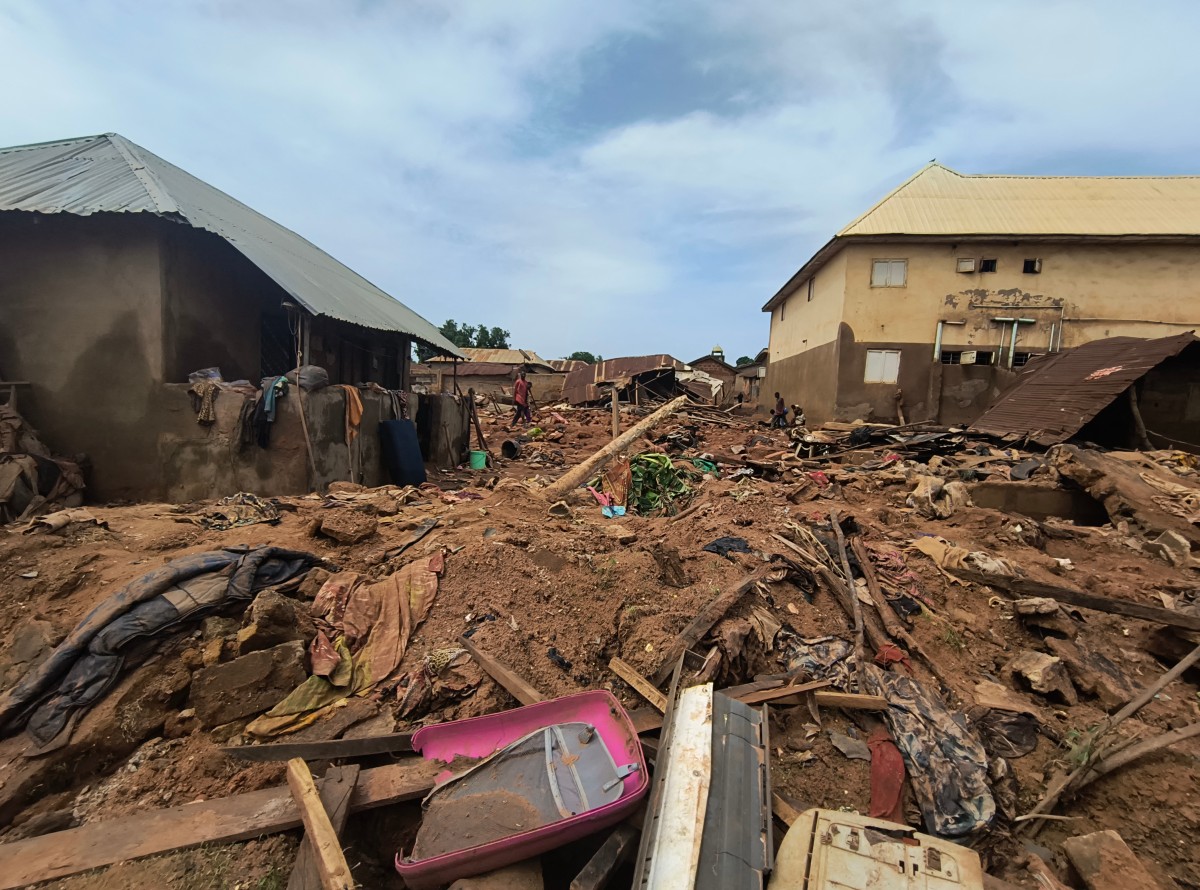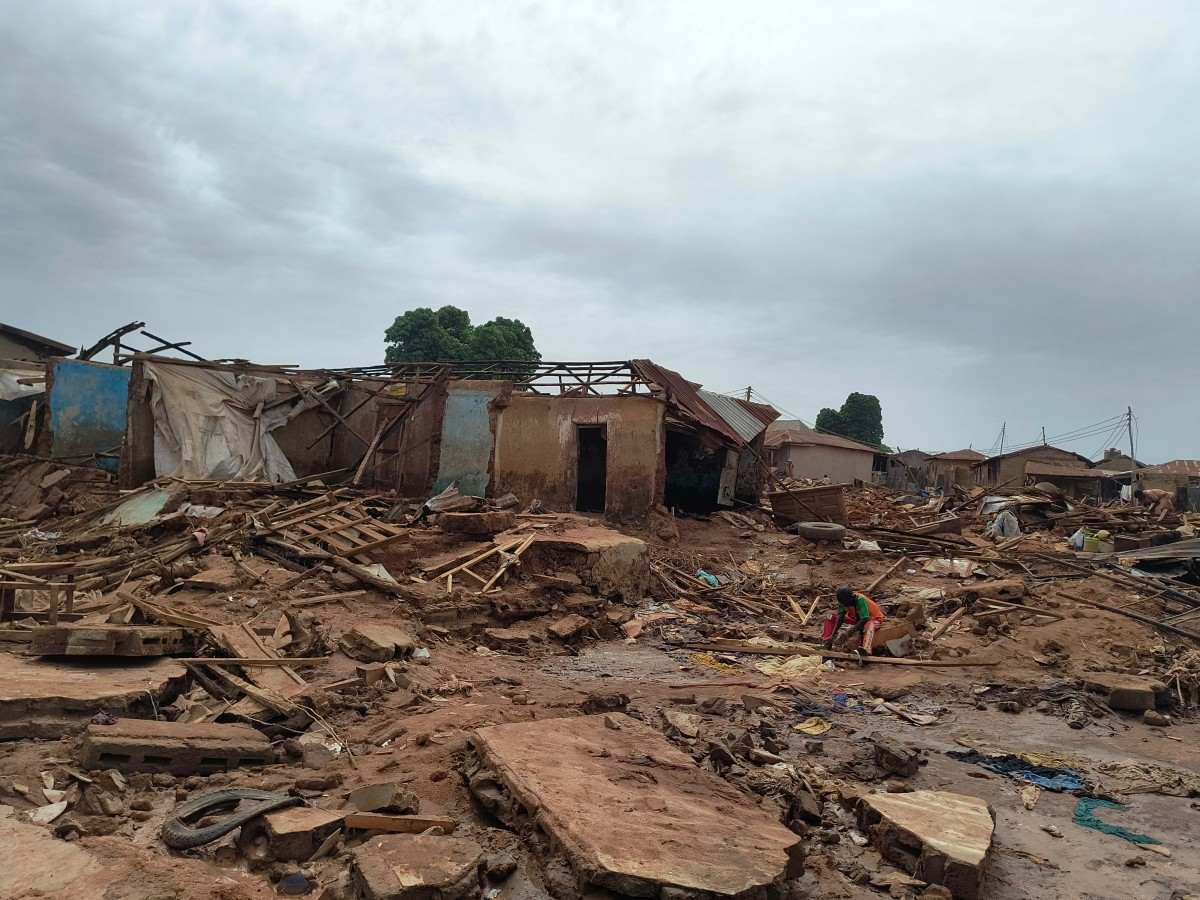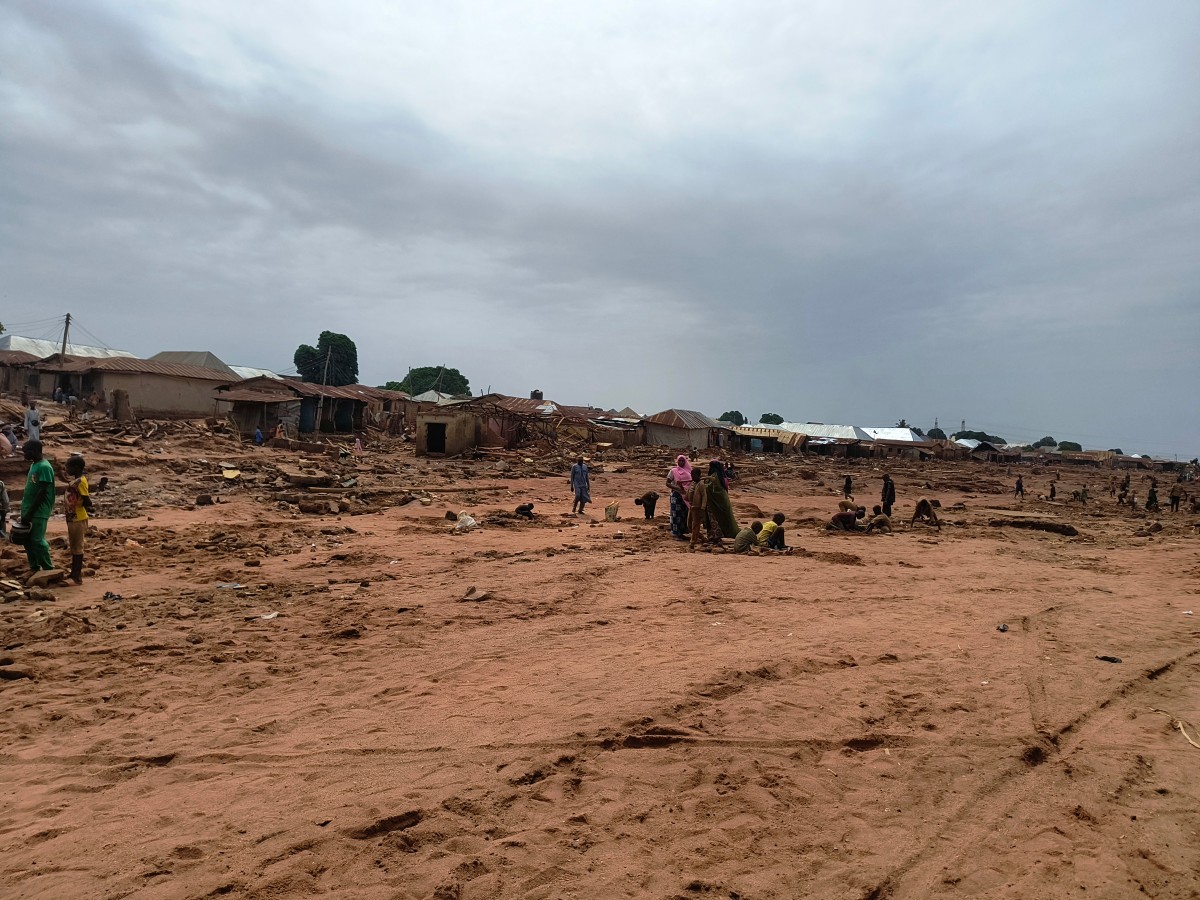
By Agence France-Presse
On a hot and humid afternoon in Mokwa, Nigeria, Fatima, and Habiba Jibrin sat under a mango tree, waiting for the recovery of corpses they fear may never come.
Both women, married to the same man, had been spending their nights there since last week when the worst flood in living memory wiped out swathes of the town—sweeping away their home, two other wives of their husband, and 16 children.
Fatima, 26, lost four children, while Habiba, 27, lost six. But of the 18 people believed to have died in the family, only four bodies have been recovered.
Their story—of nearly an entire family wiped out in a single morning—is common across Mokwa, in north-central Niger state, where the official death toll stubbornly sits around 150 but hundreds more are feared dead—possibly more than the nationwide toll for all of 2024.
Fatima told AFP: “We’ve been sleeping outside under the mango tree with [a] mat and [a] mosquito net. Even food to eat, we don’t have any.”
The government’s presence being sparse, they depend “solely” on fortunate residents whose properties were spared.
Their husband, an Islamic school teacher, has been going out daily since the muddy waters flattened more than 250 houses in the community on May 29, searching for the remaining 14 bodies. Prospects grow bleaker by the hour.

Hoping for more bodies
No fewer than 15 electricity poles were destroyed, plunging the town into darkness. The sweltering weather offers no respite.
Water is in short supply, and there are fears that cholera—a major risk after floods—may worsen the already dire situation in the weeks to come.
Volunteers and disaster response teams have recovered bodies nearly 10 kilometers away after they were swept into the Niger River. Residents told AFP on Monday, June 2, that some bodies were recovered in a village in neighboring Kwara State, on the opposite side of the powerful waterway’s banks.
Still, Fatima and Habiba are holding out hope for their husband’s daily return, even if it’s with bad news.
“We will be glad if he could recover their dead bodies so we can bury them,” Fatima Jibrin said.
Like the two women, Fatima Muhammed is also hoping the body of her grandson will be found, dead or alive.
She was preparing breakfast in the early hours of May 29 when she saw water flowing through a narrow channel in front of her house.
She was unaware that water, which had been building up for days behind an abandoned railway track along the edge of the community, had just ruptured the clay walls. In less than a minute, the gentle flow turned into a powerful torrent.
She escaped through the back door, she told AFP, but “my grandson was swept away while trying to follow me.”
She has been living with her daughter and considers herself an inconvenience. But as of Monday, there was still no help in sight.

Government aid lacking, residents say
Many residents in the Muslim-majority community are angry that the government has not been more helpful, with only days left before the Islamic holiday of Eid al-Adha.
The state deputy governor visited on May 30, and made promises, and the government says it has delivered aid. But many residents said they have seen nothing.
Amid simmering tensions, a couple of young men threatened to beat an AFP journalist, mistaking him for a government official.
An attempt to distribute some relief materials ended abruptly earlier in the day after residents—skeptical the event might be a staged photo op—insisted the items be distributed openly.
The wife of the governor, Fatima Mohammed Bago, made a short visit to the affected area on Monday afternoon, June 2. No emergency officials were present at the site until just minutes before her visit. They left immediately after.
Fatima and Habiba Jibrin, along with Fatima Muhammed, said she never came to them, and they have not received any help from the government.
36-year-old commercial driver Mohammed Aliu, whose children, wife and home were washed away by the floods, said in a statement: “There is nothing I can do. But I will be happy if I can see their corpses.”
